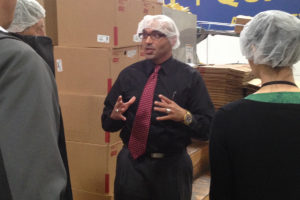We’ve long touted the benefits of the alternative staffing model. A report released this year by nonprofit, nonpartisan education and social policy research organization MDRC explores the efficacy of this model and encourages further research. Click here to read the full report, which features DePaul Industries, Atlanta’s First Step Staffing and San Jose’s TeenForce.
 As the report highlights, alternative staffing organizations (ASOs) are social enterprises that adopt a temporary staffing business model. Most noteworthy is that they help individuals who face barriers to employment to find work. As such, they “place a greater focus on the worker than a conventional firm would, and connect workers to a range of supports by leveraging community-based public and private resources.” ASOs focus on different populations. These include people with disabilities (DePaul’s area of focus), individuals who have been incarcerated, or people who have experienced homelessness.
As the report highlights, alternative staffing organizations (ASOs) are social enterprises that adopt a temporary staffing business model. Most noteworthy is that they help individuals who face barriers to employment to find work. As such, they “place a greater focus on the worker than a conventional firm would, and connect workers to a range of supports by leveraging community-based public and private resources.” ASOs focus on different populations. These include people with disabilities (DePaul’s area of focus), individuals who have been incarcerated, or people who have experienced homelessness.
One of MDRC’s key findings is that alternative staffing can provide “immediate income and work experience,” in contrast to many workforce development programs. ASOs believe that by matching an individual with a job at a customer’s workplace, the employee can start earning money and gaining experience that will help them secure future, permanent employment.
Alternative Staffing One of Many Approaches
The field of workforce development includes many different approaches, which is incredibly important when tackling the problem of high unemployment among the hard-to-employ. We agree with MDRC’s conclusion that the alternative staffing approach offers promise and is worthy of further study, particularly studies that track ASO workers’ employment status and earnings in the long term.




